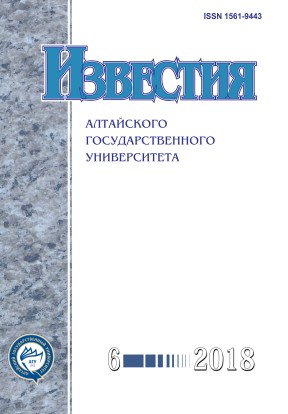Legislative Definition of Extreme Necessity Needs to Be Supplemented
Abstract
The article considers the development of extreme necessity, one of the circumstances excluding the criminality of a deed. The transformation of its legal definition in terms of the sufficiency and completeness for the law enforcement is analyzed. The comparative legal analysis of the criminal legislation of foreign countries, former republics of the Soviet Union is carried out with regard to the regulation of extreme necessity. The insufficient legal regulation of the definition of extreme necessity is identified in the Criminal Code of the Russian Federation. In some cases it obliges the law enforcement agent to proceed not from its legal definition, but from the practice of the law enforcement and theory of the criminal law. Thus the law does not regulate cases of unsuccessful extreme necessity. It does not provide for a list of the circumstances that significantly affect a legal assessment of the infliction of harm in a state of extreme necessity and does not contain a criminal law assessment of the actions of the person who created a dangerous situation and then harms legally protected objects. In addition the imperfection in the definition of exceeding the limits of extreme necessity is pointed out. The analysis of the specialized literature and foreign legislation allowed the author to conclude that the legislative definition of extreme necessity needs to be supplemented.
Downloads
Metrics
References
Цепелев В.Ф. Качество уголовного закона: проблемы Общей части : моногр. — М., 2016.
Российское законодательство Х–ХХ вв. : в 9 т. Т. 3 : Акты Земских соборов. — М., 1985.
Российское законодательство Х–ХХ вв. : в 9 т. Т 9 : Законодательство эпохи буржуазно-демократических революций. — М., 1994.
Сборник документов по истории уголовного законодательства СССР и РСФСР 1917–1952 гг. — М., 1953.
Основы законодательства Союза ССР и союзных республик. — М., 1983.
Ведомости Верховного Совета РСФСР. — 1960. — № 40. — Ст. 591.
Слуцкий И.И. Обстоятельства, исключающие уголовную ответственность. — Л., 1956.
Таганцев Н.С. Русское уголовное право.. Часть общая : лекции : в 2 т. — Т. 1. — М., 1994.
Сахаров А.Б. Уголовный закон. Опыт теоретического моделирования. — М., 1987.
Основы уголовного законодательства Союза ССР и республик (приняты ВС СССР 02.07.1991 № 2281-1) // Ведомости СНД СССР и ВС СССР. — 1991. — № 30. — Ст. 862.
Орешкина Т.Ю. Крайняя необходимость как обстоятельство, исключающее преступность деяния // Уголовное право. — 1999. — № 3.
Орешкина Т.Ю. Обстоятельства, исключающие преступность деяния : учеб. пособие для магистрантов. — М., 2016.
Пархоменко С.В. Деяния, преступность которых исключается в силу социальной полезности и необходимости. — СПб., 2004.
Уголовный кодекс Республики Узбекистан 1994 г. — СПб., 2001.
Уголовный кодекс Республики Беларусь 1999 г. — СПб., 2001.
Уголовный кодекс Литовской Республики 2000 г. — СПб., 2002.
Izvestiya of Altai State University is a golden publisher, as we allow self-archiving, but most importantly we are fully transparent about your rights.
Authors may present and discuss their findings ahead of publication: at biological or scientific conferences, on preprint servers, in public databases, and in blogs, wikis, tweets, and other informal communication channels.
Izvestiya of Altai State University allows authors to deposit manuscripts (currently under review or those for intended submission to Izvestiya of Altai State University) in non-commercial, pre-print servers such as ArXiv.
Authors who publish with this journal agree to the following terms:
- Authors retain copyright and grant the journal right of first publication with the work simultaneously licensed under a Creative Commons Attribution License (CC BY 4.0) that allows others to share the work with an acknowledgement of the work's authorship and initial publication in this journal.
- Authors are able to enter into separate, additional contractual arrangements for the non-exclusive distribution of the journal's published version of the work (e.g., post it to an institutional repository or publish it in a book), with an acknowledgement of its initial publication in this journal.
- Authors are permitted and encouraged to post their work online (e.g., in institutional repositories or on their website) prior to and during the submission process, as it can lead to productive exchanges, as well as earlier and greater citation of published work (See The Effect of Open Access).








